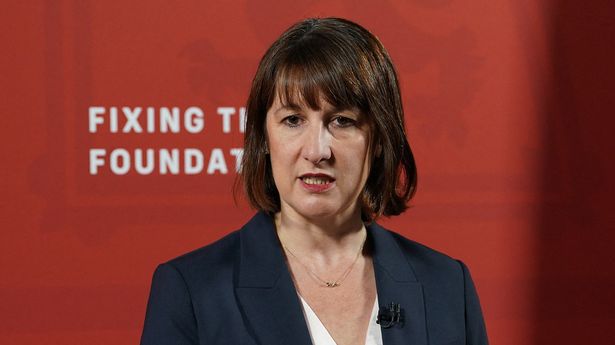Inheritance Tax receipts hit £4.3billion in the first half of the year - up by £400million compared to the same period in the previous tax year.
The latest figures from HMRC were released just days ahead of Rachel Reeves ’ Autumn Budget on October 30, where the Chancellor is reportedly considering a major Inheritance Tax shake-up. Inheritance Tax is sometimes paid on the estate of someone who has died - so property, possessions and money.
It is charged at a rate of 40%, but fewer than 5% of estates are liable to pay this charge - meaning in reality, Inheritance Tax does not impact the majority of people. You may have to pay Inheritance Tax if the value of the estate is worth more than £325,000 - and the tax would only be due on the portion of the estate above this threshold.
However, the reason why it is paid on so few estates is because there are a number of exemptions and allowances in place. There is normally no Inheritance Tax to be paid if you leave everything above the threshold to your spouse or civil partner, or if you give away your home to your children or grandchildren your threshold can increase by an additional £175,000 to a total of £500,000.
Married or civil partners can also inherit the other's unused allowance - so if they use their late partner’s allowance and pass their home on to their children or grandchildren, their Inheritance Tax threshold rises to £1million. The BBC reports that the Chancellor is considering changes to Inheritance Tax - but it is not clear how exactly it could change, or how many more people would pay the tax.
Rob Morgan, Chief Investment Analyst at wealth manager Charles Stanley, said: "Thanks to frozen nil-rate bands and asset price growth IHT receipts have been hitting record highs in recent years, soaring to £7.5billion in the 2023/24 tax year. This is set to rise in the current tax year too. Receipts from April 2024 to September 2024 are £4.3billion, which is £0.4 billion higher than the same period last year.
"Despite this, it seems inevitable Inheritance Tax (IHT) will be in the Chancellor’s Budget crosshairs given the extent of the government’s stated funding gap. With the ‘baby boomer’ accumulation of wealth increasingly being passed to the next generation inheritance tax rules are being closely examined. While it’s doubtful the rate of inheritance tax will be increased – it’s already at a very high at 40% – the various exemptions and gifting rules used to mitigate, and in some cases eliminate, the tax will surely fall under the microscope."
